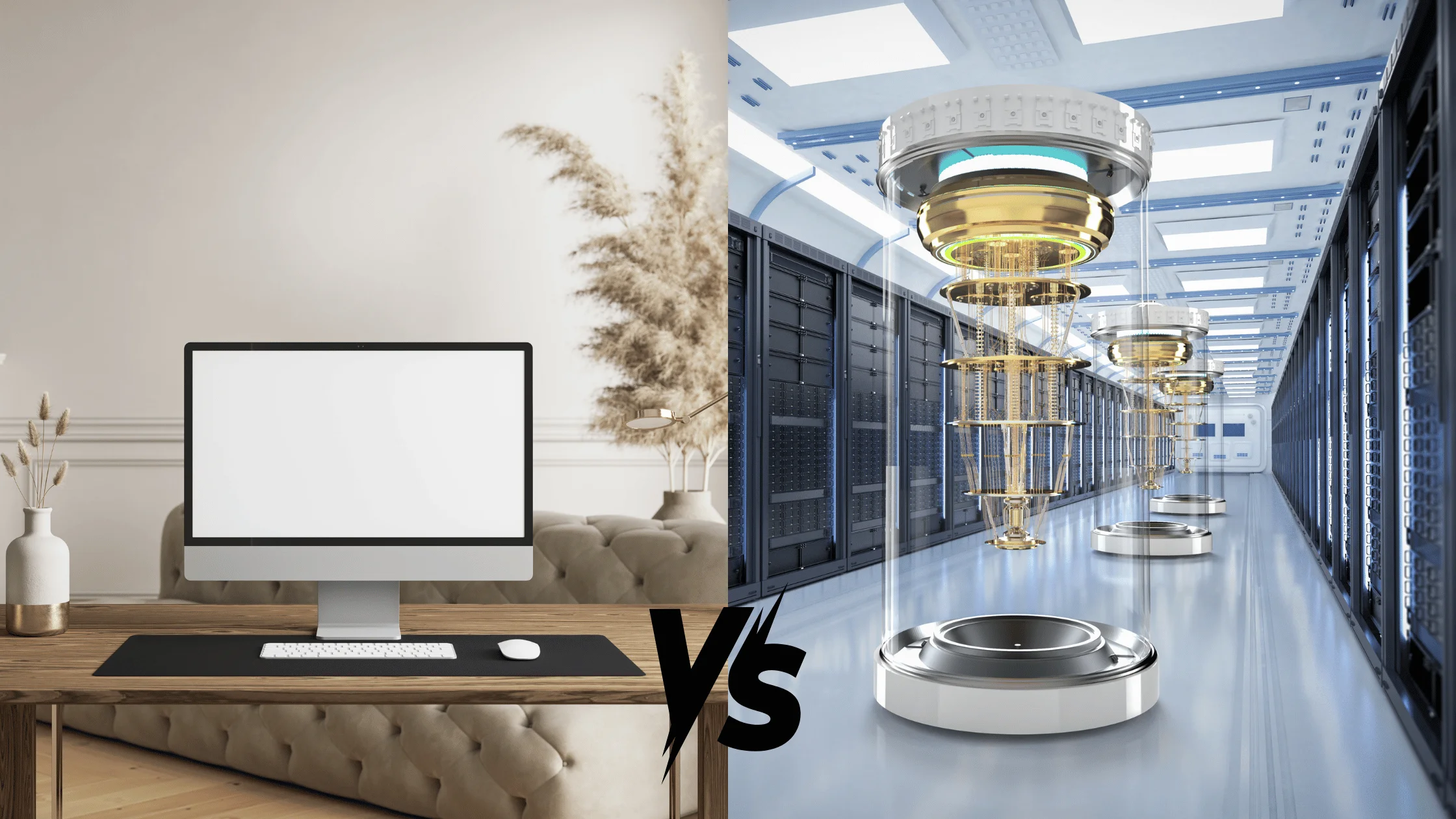Introduction to Classical and Quantum Computing
Published: 20 Jun 2025
Over the years, computing has advanced considerably, moving from classical computing that uses traditional binary logic to quantum computing that hinges on the principles of quantum mechanics.

This article looks at the basic ideas behind both classical and quantum computing, their contrasts, and the kinds of technologies we might see if quantum computing becomes practical.
Classical Computing
Definition
Traditional computation methods that use small bits of information are referred to as classical computing. In a classical system, bits can be either 0 or 1. These bits are processed using logic gates to perform calculations and execute programs.
Characteristics
- Deterministic Processing: Traditional computers adhere to fixed algorithms and yield reliable results.
- Binary Logic: Operations derive from Boolean algebra and employ gates such as AND, OR, and NOT.
- Architecture of von Neumann: Most classical computers use an arrangement where the memory and the processing unit are distinct.
Applications
Using classical computing in:
- Smartphones and personal computers.
- Processing and storing data.
- The fields of artificial intelligence and machine learning.
- Simulations in scientific disciplines.
Quantum Computing
Definition
Revolutionary! That’s how most people see quantum computing. It uses qubits, or quantum bits, that trump classical bits in ways that make possible entirely new types of computing. But what exactly do we mean by these qubits? They exist in multiple states at the same time, thanks to the physics of superposition and entanglement. A classical bit can be either a 0 or a 1, but a qubit can be 0, 1, or any quantum superposition of these classical states.
Principles
- Superposition: A qubit can be in both states, 0 and 1, simultaneously, which enables a kind of parallel computation.
- Entanglement: Qubits can be in an entangled state, which means one qubit can affect the state of another, even if they’re far apart.
- Gates in Quantum Computing: In contrast to classical logic gates, quantum gates use the principles of quantum mechanics to manipulate qubits.
Advantages Over Classical Computing
- Speedup Exponential: Quantum computers can solve certain problems much quicker than classical computers.
- Efficient Optimization: They are superb in resolving intricate optimization conundrums.
- Improved Cryptography: Quantum procedures can dismantle standard encryption techniques while simultaneously creating solid quantum encryption.
Applications
Expected to revolutionize quantum computing is an area with enormous potential. Even today, many researchers are trying to utilize principles of quantum mechanics to perform calculations in ways that are so fundamentally different from and faster than what classical computers can do that, if and when we build large-scale, fault-tolerant quantum computers, we will solve problems that are practically impossible for classical computers. And many of those problems have profound implications for our understanding of the universe.
- Finding and creating new medicines, challenged by:
- Obtaining a sufficient understanding of biology and the targets of intervention.
- Understanding the macro and micro environments in which the target works.
- The inherently unpredictable nature of drug action and drug side effects of any new compound that works at the level of the target molecule.
- Financial modeling and risk analysis.
- Artificial intelligence and machine learning (AI & ML).
- Cybersecurity and cryptography.
Differences Between Classical and Quantum Computing
| Feature | Classical Computing | Quantum Computing |
|---|---|---|
| Data Representation | Bits (0 or 1) | Qubits (superposition of 0 and 1) |
| Speed of Processing | Sequential | Parallel (because of superposition) |
| Logic Gates | Boolean-based logic gates | Quantum gates |
| Security | Prone to traditional assaults | Quantum encryption provides enhanced security |
| Computing Capacity | Restricted to two states | Exponential computational growth for certain problems |
Challenges in Quantum Computing
Even though it has strong promise, quantum computing confronts a number of problems.
- Physical Constraints: Qubits work under tightly controlled conditions, but even so, they are very delicate. Any hardware that houses qubits must be unbelievably stable.
- Error Correction: Because a quantum system is so delicate and susceptible to error from decoherence and other causes, it requires a powerful error-correcting scheme to keep it functioning properly.
- Scalability: Constructing quantum computers on a large scale is still a work in progress.
Conclusion
Classical computing is still the core of contemporary technology, but quantum computing is an entirely different animal. It is changing, or will soon change, the disciplines in which large-scale classical computing was once dominant.
Classical computers solve problems in a step-by-step, serial way, using bits made of silicon, switching on and off. Quantum computing leverages parallel computation using quantum mechanics principles, unlocking new possibilities for problem-solving.

- Be Respectful
- Stay Relevant
- Stay Positive
- True Feedback
- Encourage Discussion
- Avoid Spamming
- No Fake News
- Don't Copy-Paste
- No Personal Attacks

- Be Respectful
- Stay Relevant
- Stay Positive
- True Feedback
- Encourage Discussion
- Avoid Spamming
- No Fake News
- Don't Copy-Paste
- No Personal Attacks





